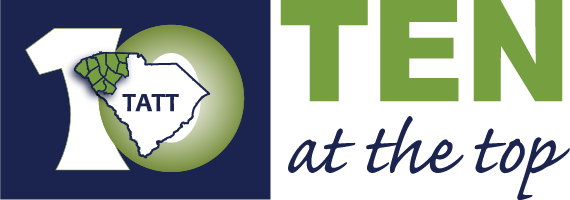
Dean Hybl, Executive Director, Ten at the Top
While cities, counties, businesses and organizations across the Upstate continue to address public health and economic issues related to the global pandemic, Ten at the Top remains committed to serving as a regional convener and connector to help support local efforts and grow the Upstate’s collective capacity.
To help better understand the concerns and challenges being faced by communities across the Upstate, Ten at the Top recently completed a virtual “Listening Tour” of the seven non-urban counties in the region (all counties except Anderson, Greenville and Spartanburg). Each session included input from leaders from local governments, community organizations, businesses and other local stakeholders.
While each county had its own nuances and distinct approach to responding to the pandemic, there were a number of similarities across the region.
Most encouragingly, each county reported that overall the response to provide needed services to those facing immediate hardship has been successful in meeting the general needs of all residents, including children, seniors and college students. Another commonality has been a collaborative spirit as many local entities, including some that had not previously worked together, have collaborated to meet the needs of local residents.
Communication has been an important element and communities have used a variety of methods to ensure residents are aware of programs as well as health services. Social media has played an important role in many communities, but with a significant portion of residents in rural counties not serviced by high speed internet, that approach has not reached all residents.
Accessible and affordable internet was a theme across the region. In some communities, school buses were deployed to help residents connect to internet, especially to assist students. However, with transportation also an issue for some residents, reaching an internet hot spot was not always possible.
With many businesses shut down for an extended period of time due to the stay at home order issued by Governor McMaster, there is great concern about how quickly small businesses can recover. Many communities have worked with business service agencies to help ensure their business owners are able to connect to government support programs developed to reduce the impacts on local businesses. In addition, many local business organizations have been providing marketing and promotional support for local businesses.
One interesting commonality among the communities is that while COVID-19 has spotlighted issues including internet accessibility and fragility of small businesses in rural communities, there are also a number of issues that were of concern prior to COVID-19 that remain priorities across the Upstate.
Mobility and lack of transportation access has become a regional priority in recent years, especially for many residents of rural communities who are unable to improve their personal economic mobility due to lack of access to transportation. Skill training also remains an issue in many Upstate counties as the technical colleges, Workforce Boards and others continue to provide a critical service to help people gain skills needed for higher paying jobs.
During each session, members of the Ten at the Top team asked a specific set of questions around the topics of general collaboration, economic development & small businesses, infrastructure & mobility and social services, public health and education. You can read each of the county specific summaries through this link.
Next Steps & Future Opportunities
In general, the listening tour input reinforced that a number of the areas in which Ten at the Top has been focusing collaborative efforts—including mobility & transportation, entrepreneur support and senior needs—remain relevant during the current crisis.
Access to internet & broadband technology was also a major focus, and while Ten at the Top will certainly support the continued expansion of availability across the region, that issue seems to have been identified as a state-wide issue that the state legislature will be focusing to address.
Below are some of the specific follow-up actions that TATT will be taking in the coming weeks to support the issues identified during the listening tour:
Rural Mobility Listening Session: The Upstate Mobility Alliance’s Moving People Task Force will be holding a special virtual listening session on July 13th with representatives from rural communities to better learn about specific mobility & transportation challenges in the non-urban areas within the Upstate. Following this session, the committee will develop a strategy for how to move forward in supporting greater access to transportation in the rural areas within the Upstate.
Entrepreneur & Small Business Webinar Series: To help address some of the specific challenges identified by entrepreneurs and small businesses, TATT’s Upstate Entrepreneur Ecosystem group will be holding a series of webinars with subject experts that will be available for viewing by small business owners and entrepreneurs. In addition, the group will continue to focus on “connecting the disconnected” with resources to help start and grow businesses in the Upstate.
Senior Needs Workshops: Due to COVID-19, TATT has been unable to hold in-person Senior Needs Workshops through the first half of 2020. Beginning in August, we intend to hold virtual workshops to continue to connect senior service providers and to especially understand how to support their needs during the current pandemic.
In addition to these three specific efforts, TATT will continue to look for opportunities to support communities across the Upstate in other areas that are impacted by the pandemic and corresponding economic crisis.
